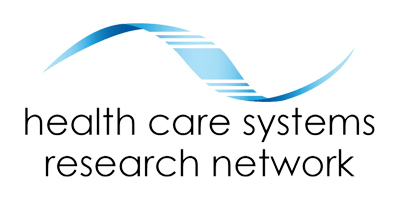Sentinel Initiative
Overview
The Sentinel Initiative is a multi-year national effort sponsored by the U.S. Food and Drug Administration (FDA) to utilize an electronic system for monitoring the performance of FDA-regulated medical products. The Sentinel Distributed Database is comprised largely of administrative and claims data from health insurers, with more than 300 million person-years of high quality, unduplicated, curated data. The FDA is now actively engaged in promoting synergies and identifying opportunities for broader use of the data infrastructure used by Sentinel for other purposes within the public health arena.
Quick Facts
- PI: Richard Platt, MD, MSc of Harvard Pilgrim Health Care Institute
- Funding agency: U.S. Food and Drug Administration (FDA)
- Year funded: 2009
- Website: Sentinel Initiative
- The Sentinel System Coordinating Center has been led by Harvard Pilgrim since inception

Primary Investigator

Richard Platt, MD, MSc
Key Partners & Accomplishments
Participating Data Partners
-
Aetna: Aetna Informatics
-
HealthCore, Inc.
-
Group Health Research Institute (HCSRN member)
-
Harvard Pilgrim Health Care Institute (HCSRN member)
-
HealthPartners Institute for Education and Research (HCSRN member)
-
Henry Ford Health System: Public Health Sciences Department (HCSRN member)
-
Marshfield Clinic Research Foundation (HCSRN member)
-
Meyers Primary Care Institute (HCSRN member)
-
Humana: Comprehensive Health Insights, Inc.
-
Kaiser Permanente Center for Effectiveness and Safety Research (multiple HCSRN members)
-
Lovelace Clinic Foundation
-
OptumInsight, Inc.
-
Vanderbilt University Medical Center
Additional Partners
-
America’s Health Insurance Plans: Clinical Affairs Department
-
Brigham and Women’s Hospital: Division of Pharmacoepidemiology & Pharmacoeconomics in the Department of Medicine
-
Cincinnati Children’s Hospital Medical Center: James M Anderson Center for Health Systems Excellence
-
Columbia University: Department of Statistics
-
Critical Path Institute
-
Duke Clinical Research Institute
-
Health Care Systems Research Network, formerly known as the HMORN
-
Outcome Sciences, Inc., a Quintiles company
-
Rutgers University: Center for Health Services Research on Pharmacotherapy, Chronic Disease Management and Outcomes at the Institute for Health, Health Care Policy and Aging Research
-
University of Alabama at Birmingham: Center for Outcomes and Effectiveness Research and Education
-
University of Illinois at Chicago Medical Center: Departments of Pharmacy Administration, Pharmacy Practice, General Internal Medicine, and Biostatistics
-
University of Iowa: Department of Epidemiology in the College of Public Health
-
University of Pennsylvania School of Medicine: Center for Clinical Epidemiology and Biostatistics and Department of Biostatistics and Epidemiology
-
Weill Cornell Medical College: Department of Public Health
Select Outputs
- Data Enclaves for Sharing Information Derived From Clinical And Administrative Data – in this JAMA Viewpoint, the authors assert that data enclaves address two major barriers to data sharing by allowing health systems to protect patients’ interests and their own by maintaining physical and operational control, and also by obviating the need to build new secure systems.
- Rotavirus vaccine and intussusception – a project to determine the existence and magnitude of any increased risk of intussusception in the 1 or 3 weeks following RotaTeq or Rotarix vaccination and determine through medical chart review the positive predictive value of an ICD9-code-based algorithm for identifying intussusception.
- Risk of acute myocardial infarction associated with new use of anti-diabetes medications – a project to conduct active surveillance of newly marketed anti-diabetes medications.
- Taxonomy for monitoring methods within a medical product safety surveillance system – a project to create a decision table that enables expedited matching of medical product safety questions to design and analytic approaches and map recommended statistical methods to the epidemiologic designs.
Key Accomplishments
Sentinel has created a national infrastructure for the FDA to monitor medical product safety, which includes a distributed dataset containing quality-checked data from 18 health plans, including 13 Health Care Systems Research Network sites, covering 300+ million person years.
